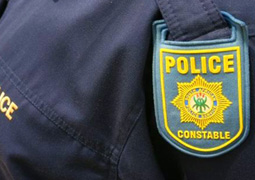
In the National Assembly yesterday, the Minister of Police, Mr Bheki Cele, tabled the budget vote for the South African Police Service (SAPS) together with those of the Independent Investigative Directorate (IPID) and the Civilian Secretariat for Police Service.
As he tabled the vote, he argued that this budget responds decisively to citizens’ ongoing concerns about crime and crime prevention. He said that crime prevention will increase significantly during the financial year ahead.
The theme for the police this year is “Combating crime through decisive police action and robust community involvement”. This will be achieved, the Minister claimed, through the use of 10 policing commands, which include: community mobilisation; South African Police Service recruitment and expansion; and increasing the capacity of detectives, the Directorate for Priority Crime Investigation (the Hawks) and other specialised police units. Other police commands focus on gender-based violence and femicide and improvements in DNA processing; enhanced police technology and the fourth industrial revolution; police visibility and rapid response; and building police stations.
“The SAPS management have adopted a vigorous action plan that’s ensuring the streets and highways of this country are saturated with ongoing, weekly high-density operations. These operations will sweep the streets and sanitise communities from criminality.
The department has also unleashed a nationwide armed intervention called Operation Shanela, which includes intelligence-led disruptive operations, the tracking and tracing of wanted suspects, as well as the removal of illegal firearms, said Minister Cele.
Mr Cele also announced the strengthening and capacitation of tactical response teams (TRT) at high-crime stations, with the objective of policing high-crime areas and providing a rapid response capability to local crime fighting. “The intervention of the TRT at local level has been demanded by communities and the SAPS is responding accordingly with 1 000 members being trained,” the Minister said.
To further boost detectives’ investigative capacity, SAPS management is inviting experienced members of the service in good standing to return to service, following the necessary three months’ training.
The Minister also confirmed that initiatives have been set up to address deficiencies identified by the Financial Action Task Force (FATF), which aim to accelerate the implementation of FATF standards and methodologies within SAPS. The FATF recommendations emphasise attending to money laundering and the financing of acts of terror. To this end, the Hawks has established a National Clean Audit Task Team at its national head office to specifically deal with fraud, corruption, money laundering and contraventions of the Municipal Finance Management Act 56 of 2003 in identified municipalities.
Participating in the budget vote debate, the Chairperson of the Portfolio Committee on Police, Ms Tina Joemat-Pettersson, welcomed the budget and the Minister’s plans to tackle crime and corruption, including cross-border financial crimes. She also welcomed assurances that the Hawks will work hard to address concerns raised by the FATF about money laundering and terrorism financing.
“The committee will work closely with National Treasury to ensure South Africa is removed from grey listing. We also welcome that investigations into matters raised in the commission of enquiry into state capture, corruption and fraud in the public sector is well on its way,” the Chairperson said.
She also called on the police to work hard to combat economic sabotage and organised crime and to secure national infrastructure and the economy. “The continuous influx of illegal foreigners must be addressed to the JCPS [Justice, Crime Prevention and Security] Cluster and SARS [South African Receiver of Revenue]. We must also clearly state that we are not against economic migrants, but it must be done legally and responsibly. Undocumented foreigners have a devastating effect on crime in general, but specifically on illegal mining,” she said.
Mr Andrew Whitfield of the Democratic Alliance was concerned about the spike in police killings, which he said is a serious threat to South Africa’s security establishment. “When criminals don’t fear consequences from the state, they become emboldened to commit more crime and even to attack the state by killing police officers.”
Mr Whitfield accused the Minister of leaving a trail of broken promises since his appointment to the position in 2018, saying there has not been any demonstrable improvement in making South Africans safer. “Violent crimes against women and children continue unabated. Organised criminal syndicates have become more sophisticated and better resourced than our own state security agencies, resulting in kidnappings having nearly doubled,” he said.
Economic Freedom Fighters Member of Parliament Mr Henry Shembeni was concerned about the state of policing, which he said reflects a general neglect by the ruling party of the key fundamentals of governance. “These gangsters use the police to fight against law-abiding policemen and women in this country, whilst the SAPS and its senior leaders are colluding with criminals, society is suffocating from crime.
“This is not a normal society; there is something inherently wrong with a state that allows the proliferation of crime and disorder. We have become a criminal society and crime is allowed implicitly and explicitly by the state. We need to rethink our policing strategy before the entire country becomes a den of criminals,” said Mr Shembeni.
Sakhile Mokoena
24 May 2023

